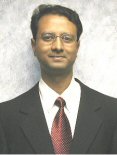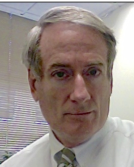
MENU
Symposium 2014 Home
Registration
2014 Agenda
C4I
Home
GMU C4I Center-AFCEA Symposium
May 20-21, 2014
SESSION 3: The STEM Workforce Question
_____________________
STEM Enrollments After Sputnik Came Down
Dr. Lindsay Lowell
Georgetown University

May 20, 2014 at 15:30
ABSTRACT
The US graduates many more STEM students than those who end up either in a STEM or STEM-related occupation; and it imports very significant numbers of foreign students and workers. How credible is the expansive assertion that "STEM is in" almost every modern job? How true are claims that students lack skills or interest or stick-to-itiveness? Are foreign H-1B temporary workers the best and brightest? Such claims are variants on historical cycles of concern, but what if we presume they're correct? Can the US supply side its way to STEM dominance by ginning up the domestic pipeline while importing ever more foreign students and workers? Since the Sputnik moment the composition of today's R&D and STEM earnings suggest a demand-side problem.
BIO
DR. LOWELL is Director of Policy Studies at the Institute for the Study of International Migration, Georgetown University. He was previously Director of Research at the Congressionally appointed Commission on Immigration Reform where he was also Assistant Director for the Mexico-US Binational Study on Migration. He has been Research Director of the Pew Hispanic Center at the University of Southern California, a Labor Analyst at the Department of Labor; and he taught at Princeton University and the University of Texas, Austin. Dr. Lowell has written over 150 articles and reports. He has published in journals such as Demography, American Economic Review, Population and Development Review, Industrial Relations and Work and Occupations. His research interests include immigration policy, labor force, economic development, Mexico-US migration, education and the global mobility of the highly skilled. He received his PhD as a Demographer from Brown University.
_____________________
Why Producing Engineers is Challenging
Dr. Rajesh Ganesan
Associate Professor
Systems Engineering and Operations Research
George Mason University

May 20, 2014 at 15:30
ABSTRACT
This talk will highlight the main factors, focusing particularly on K-12 education, that contribute to the difficulty in producing engineers. Some of the research data comes from the speaker's own NSF funded research in creating university-school division partnerships for infusing STEM curricula, and the US Dept of Education grant for teacher training in problem-based learning. The talk will conclude with various initiatives that are on-going to improve STEM outcomes in K-12 education with a call for more participation from various stakeholders that can help in bridging the gap between supply and demand for STEM professionals.
BIO
DR. GANESAN is an associate professor of systems engineering and operations research at George Mason University, Fairfax, VA. He received his Ph.D. in 2005 and M.S. in 2002 both in Industrial Engineering, and M.A in Mathematics in 2005, all from the University of South Florida, Tampa, FL. His areas of research include stochastic optimization, Big data analytics, and systems engineering with applications in health care, defense, air transportation and nano-manufacturing. He is affiliated to the Center for Air Transportation Systems Research at George Masson University. He is the Principal Investigator of the National Science Foundation funded SUNRISE GK-12 project at George Mason University, which is an unique university-school division partnership to infuse STEM into K-12 education. He is the recipient of both Volgenau School of Engineering's Outstanding Teaching and the University's Teacher of Distinction Awards. He is a senior member of IIE and is a member of ASEE, INFORMS, and IEEE societies.
_____________________
Evidence That There Is a Significant
STEM Workforce Shortage
Robert S. Boege
Executive Director
Alliance for Science and Technology Research in America (ASTRA)

May 20, 2014 at 15:30
ABSTRACT
While nurturing and providing access to STEM talent is critical for maintaining U.S. innovation capacity, the evidentiary basis needed to establish that there is a shortage of U.S. STEM workers applies only to limited areas of the STEM economy. Evidence of worker shortages in Computer Sciences & Mathematics exists, but not so in Architecture and Engineering or in the Life and Physical Sciences. STEM policy decisions are marred by flawed statistical methodologies and disagreements about what STEM jobs are and what STEM-related skills are needed. Our discussion focuses on STEM metrics and how we can better define and measure STEM activities and/or fix incomplete or antiquated STEM indicators to benefit policy decisions. We then provide multiple examples from ASTRA research highlighting what we call STEM "chokepoints" - such as improving STEM curriculum and skills acquisition, STEM teacher training, and taking advantage of the Ed-Tech Revolution that is transforming education generally and helping to make STEM education more accessible and responsive to the career needs of students, workers and employers alike.
BIO
ROBERT BOEGE has served as Executive Director of ASTRA, the Alliance
for Science & Technology Research in America since January of 2001.
Boege attended Georgetown University and the Université de Fribourg, Switzerland as an
undergraduate. An honors graduate of Georgetown University Law School, Boege has served in
various positions within the government, nonprofit sector and industry. He has published
extensively in the areas of nonprofit taxation and antitrust law. Boege created the publication
Association Law & Policy and served as its editor for 11 years.
Following jobs in the Congressional Research Service and Sperry Corporation, Boege became
the chief lobbyist for the American Society of Association Executives (ASAE) and began that
organization's government affairs outreach program in 1982.
Boege was business liaison for the 1984 Presidential Campaign and the Presidential Inaugural
Committee in 1985. He was subsequently appointed Associate Director of the White House
Conference on Small Business, and then held a series of positions in the U.S. Small Business
Administration and the U.S. Department of Energy.
From 1999-2000 he served in the Technology Administration at the U.S. Department of
Commerce, where he specialized in issues related to the "new" economy, workforce
development and technology policy. A native of Davenport, Iowa, Boege is a resident of
Martinsburg, WV where he is active in civic affairs and historic preservation activities.
Chair
Vin O'Neill
Senior Legislative Representative
IEEE-USA

